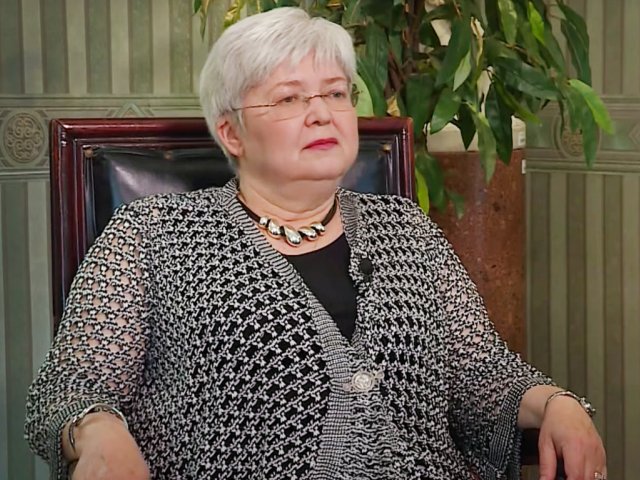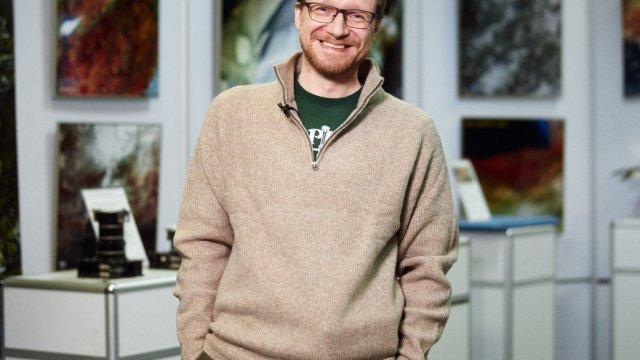Official:
Isaac Newton. December 25, 1642-March 20, 1727 (according to the Julian calendar used in England until 1752), or January 4, 1643 – March 31, 1727 (Gregorian calendar). English physicist, mathematician, mechanic and astronomer, one of the founders of classical physics.
Life and Work:
1. According to the global survey of scientists organized by Isaac Asimov, Sir Isaac Newton, along with Archimedes and Darwin, was unanimously included in the top three greatest figures of science in the history of mankind. And on merit – the list of his achievements is impressive, and among the “smoother pebbles” and “prettier shells” there are fundamental laws of modern physics – the law of universal gravitation and three Newton’s laws, which laid the foundations of classical mechanics.
2. Independently of Leibniz and simultaneously with him, Newton created the integral and differential calculus. His contribution to optics and celestial mechanics is invaluable, as well as his other feats. Newton is the epoch and the foundation of modern physics – this assessment is universally accepted.
3. The future great physicist Newton was born in Woolsthorpe Manor in Lincolnshire, where he later spent his fruitful Plague Years, which were also noted for an outstanding harvest of apples; as they say, the fall of one such apple prompted the scientist to thoughts about universal gravity.
4. Isaac Newton was born very prematurely and, according to the midwife, could fit in a one-quart (less than one liter) jar. Despite his prematurity and poor health, he lived quite a long life for his time – 84 years.
5. The tiny boy was christened Isaac in memory of his father, a successful farmer, who did not live to see the birth of his son.
6. As a child, Newton loved reading and making mechanical toys, windmills, and kites. He grew up silent and withdrawn, and felt lonely throughout all his later life.
7. Teachers of the school in the town of Grantham noticed the reserved, but capable boy. But his mother’s plans did not include a serious education, and they tried to engage the barely 16-year-old Isaac in agricultural work at the manor. In vain: Newton read, wrote poetry, designed mechanisms, but did not want to manage the estate.
8. In the end, Anna Newton gave up and allowed her son to graduate from school and enter Cambridge University.
9. In 1664, an undergraduate Trinity College student started to perform scientific activity independently and compiled a large list of 45 unsolved problems in nature and human life. Later, similar lists will appear in his papers more than once.
10. In Newton’s student notebook, there is a phrase that is considered defining: “In philosophy, there can be no ruler but truth… We must erect monuments of gold to Kepler, Galileo, Descartes, and on each one write, “Plato is my friend, Aristotle is my friend, but my best friend is truth.”
11. Newton’s biographer, Professor More, wrote, “In the history of science, there is no example equal to the achievements made during these two golden years.” Meanwhile, the “golden” years were 1665-1667, when the plague struck London and Cambridge, and Newton was hiding from it in his native village of Woolsthorpe.
12. On his return from Woolsthorpe, the 26-year-old Newton was elected Lucasian Professor of Mathematics and Optics at Trinity College. It was at that time that the professor of optics built a new type of telescope – a reflector.
13. Once, Newton bought a trinket at a fair – a prism made of glass. The scientist found use for it: he used it in experiments and experimentally discovered the dispersion of light. This discovery upset the poets greatly: John Keats claimed that Newton destroyed the poetry of the rainbow, and Goethe claimed that Newton deprived the world of the purest color, that is, white.
14. In 1697, Newton anonymously published a solution to a complex mathematical problem. After seeing the publication, Johann Bernoulli said that you could always recognise a lion by its claws.
15. In one experiment, Isaac Newton took a long, blunt needle, stuck it deep into his eye socket, and pressed it down to change the curvature of the retina. Surprisingly, this experiment went unpunished, and the scientist retained good eyesight until old age.
16. In the early 1690s, Isaac Newton started to suspect his old acquaintances of plotting against him and often mentioned events that had not actually happen. Researchers believe this to be a consequence of Newton’s interest in alchemy. Indeed, there was only one window in the laboratory where Newton spent a lot of time heating mercury. When Newton’s body was exhumed, the researchers found an increased, health-endangering content of mercury. Poisoning remained the only result of many years of practicing alchemy –Newton did not publish any works on this topic, although books on alchemy made up a tenth of his library.
17. In 1703, Newton was elected president of the Royal Society. He managed the Society until the end of his life and did everything to ensure that the British Royal Society took an honorable place in the scientific world. The scientist covered the costs of moving the society to its Fleet Street residence himself.
18. In 1705, Queen Anne knighted Newton. For the first time in the history of England, the title of knight was awarded for scientific merits.
19. Isaac Newton was a brilliant, multifaceted personality. He achieved significant success in many areas. Newton’s work as Master of the Mint was marked by an eightfold increase in the productivity of workers and a complete victory over counterfeit coins.
20. During the Great Embassy, Russian Tsar Peter I visited the Mint. There is no evidence of his visit and communication with Newton, but in 1713, the scientist sent the first six printed copies of the 2nd edition of the Mathematical Principles of Natural Philosophy personally to Tsar Peter.
21. Politics was the only field where Newton did not succeed. He was elected to the House of Commons, but spoke there only once – he asked to close the window, as there was a draft.
22. Shortly before his death, Newton was among the victims of the financial scam of The South Sea Company, a major trading enterprise supported by the government. He purchased the company’s securities for a large sum and also persuaded the Royal Society to purchase them. The company’s bank declared bankruptcy, and Newton lost more than 20,000 pounds. The distressed scientist stated that he could calculate the motion of the celestial bodies, but not the degree of madness of the crowd.
23. The great scientist’s funeral was attended by the whole of London, led by the Lord Chancellor and the royal ministers. He was buried in Westminster Abbey among the kings, and the inscription on his grave reads: “Here is buried Isaac Newton, Knight, who by a strength of mind almost divine, and mathematical principles peculiarly his own, explored the course and figures of the planets, the paths of comets, the tides of the sea, the dissimilarities in rays of light, and, what no other scholar has previously imagined, the properties of the colours thus produced. Diligent, sagacious and faithful, in his expositions of nature, antiquity and the Holy Scriptures, he vindicated by his philosophy the majesty of God mighty and good and expressed the simplicity of the Gospel in his manners. Mortals rejoice that there existed such and so great an ornament of the human race!”
24. The statue erected to Newton at Trinity College bears Lucretius’ words: “Qui genus humanum ingenio superavit,” which means, “He surpassed the human race in genius.”
25. Newton himself estimated his achievements modestly. In a letter to Robert Hooke he wrote, “If I have seen further than other men, it’s because I have stood on the shoulders of giants.” A biographer of Newton, the Scottish physicist David Brewster quotes the famous scientist: “I do not know what I may appear to the world, but to myself I seem to have been only like a boy playing on the sea-shore, and diverting myself in now and then finding a smoother pebble or a prettier shell than ordinary, whilst the great ocean of truth lay all undiscovered before me.”





















